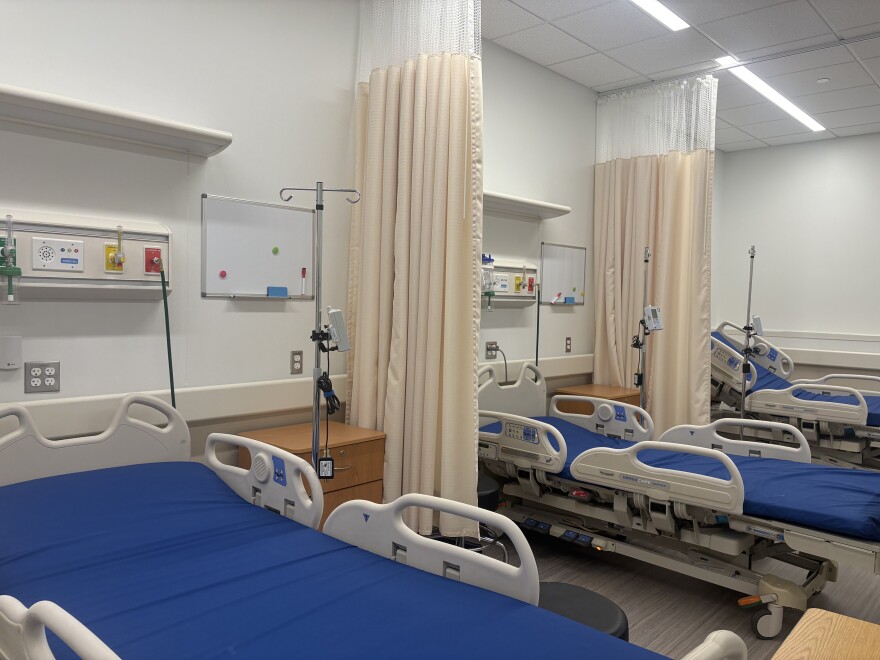Central Michigan University is preparing to welcome its first class of nursing students this fall. Twelve students are enrolled in the new four-year Bachelor of Science in Nursing program.

Nelda Martinez, the executive director of the nursing program at CMU, said the goal is to help students advance their education, and help address nursing shortages at hospitals across central and northern Michigan.
“There was a gap not just in providing nursing staff for all the facilities and the needs in the central to northern part, rural areas and so forth, but also for people who wanted to go to college to be a nurse,” she said.
The Michigan Health and Hospital Association estimates there are 4,927 nursing vacancies across the state in 2025. Nurses were also hired the most among all hospital employees in 2024, totaling 11,520 new hires.
Amy Brown, Chief Nursing Officer with the Michigan Health and Hospital Association, said this shortage is happening because the baby boom generation, which filled a lot of nursing positions, is now retiring. More recent generations have been unable to fill all the vacancies because of declining birth rates, resulting in fewer young nurses.
Some areas of the state are seeing more nursing vacancies than others, including rural communities, Brown said. That’s partially because those areas are further away from nursing schools.
“The goal is for patients never to feel like [hospitals] are short staffed,” Brown said. “The reality is that oftentimes what patients might feel is longer wait times with regards to when you put your call light on and just the frustrations of nurses feeling like they can't get to everything that they want to get to take care of their patients.”
Michigan hospitals are also working on ways to combat the shortage, Brown said. For example, they offer flexible scheduling and try to meet nurses’ needs.
In addition, she said educational programs such as the one at CMU can also help hospitals get more nurses.
Emily McIntire, a faculty member in nursing program, said she also believes the program at CMU can help supply Michigan with critical nursing staff.
McIntire will teach health assessment lab this fall and is developing future courses such as health promotion, which would teach students about preventive care.
“We're just anxious to have the students start and start doing what we love, which is teaching,” she said. “I'm sure there will be bumps along the way, it's the first time going through it with this program, but I think everybody's so excited and invested.”
Martinez said the program will also teach the next generation of nurses how to communicate with patients, and what laws and ethics are involved in patient care.
Students will have the opportunity to practice with mannequins in simulation labs and learn using virtual reality, Martinez said.
“This nursing education program [is] to help [students] see that by the time they graduate, this is what you're going to achieve, how you're going to be doing it, the ways and means,” she said.
For the first couple of years, CMU hopes to admit up to 30 students to the nursing program per semester, Martinez said. Then, the number is set to grow to 60 students.
We note WCMU's broadcast license is held by Central Michigan University. WCMU's newsroom is editorially independent from CMU, and the university is not involved in writing, editing or reviewing our reports.




